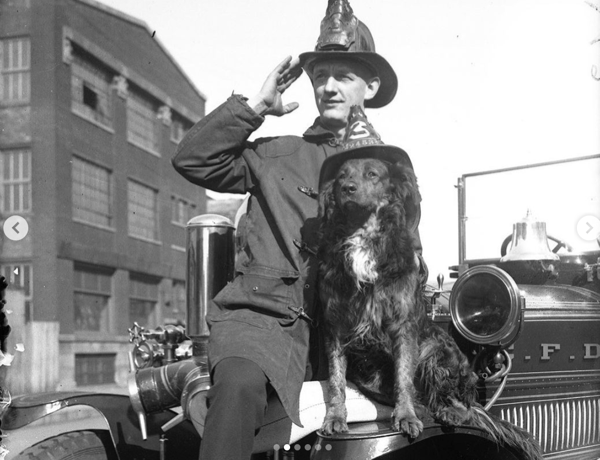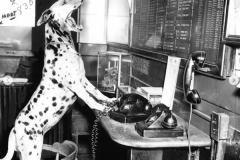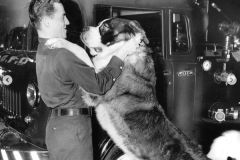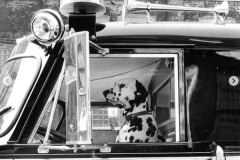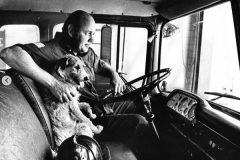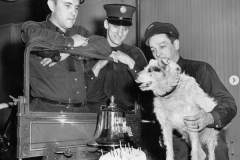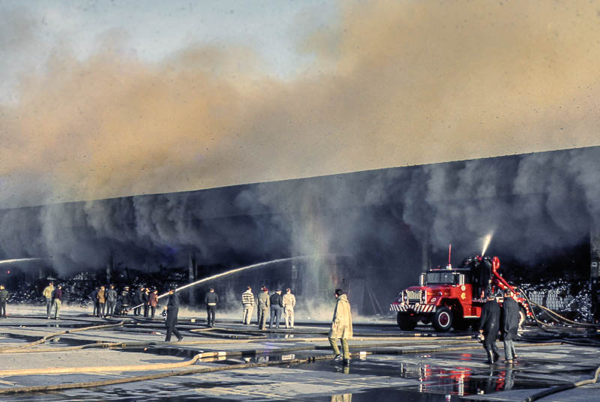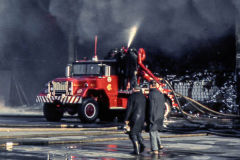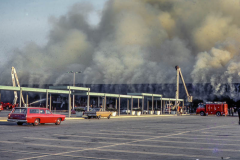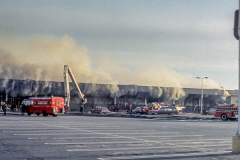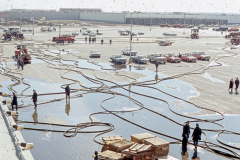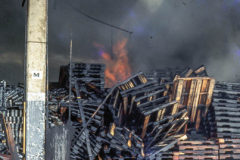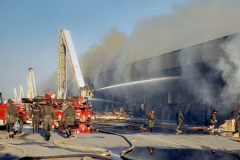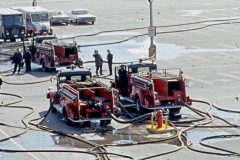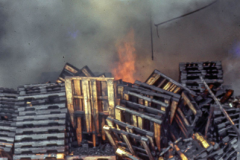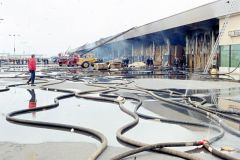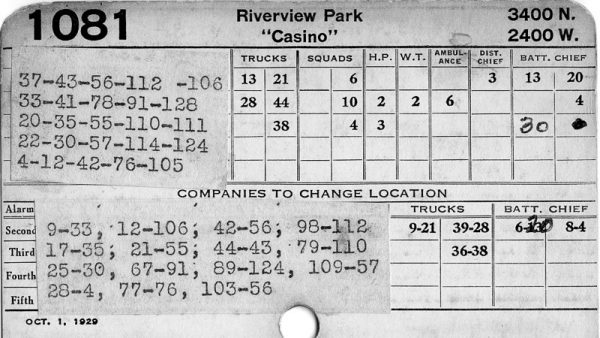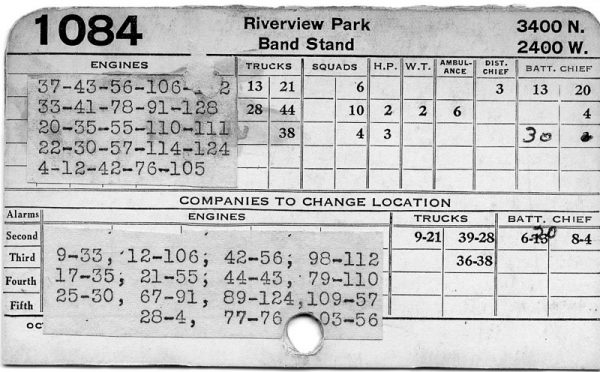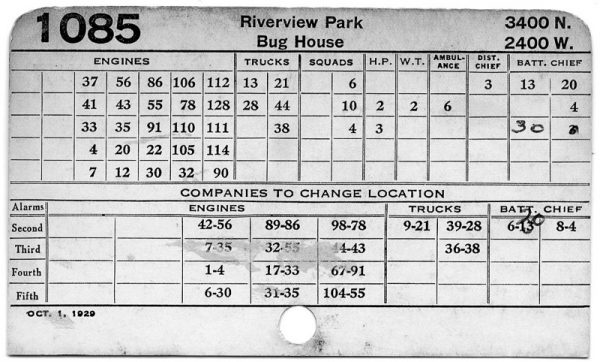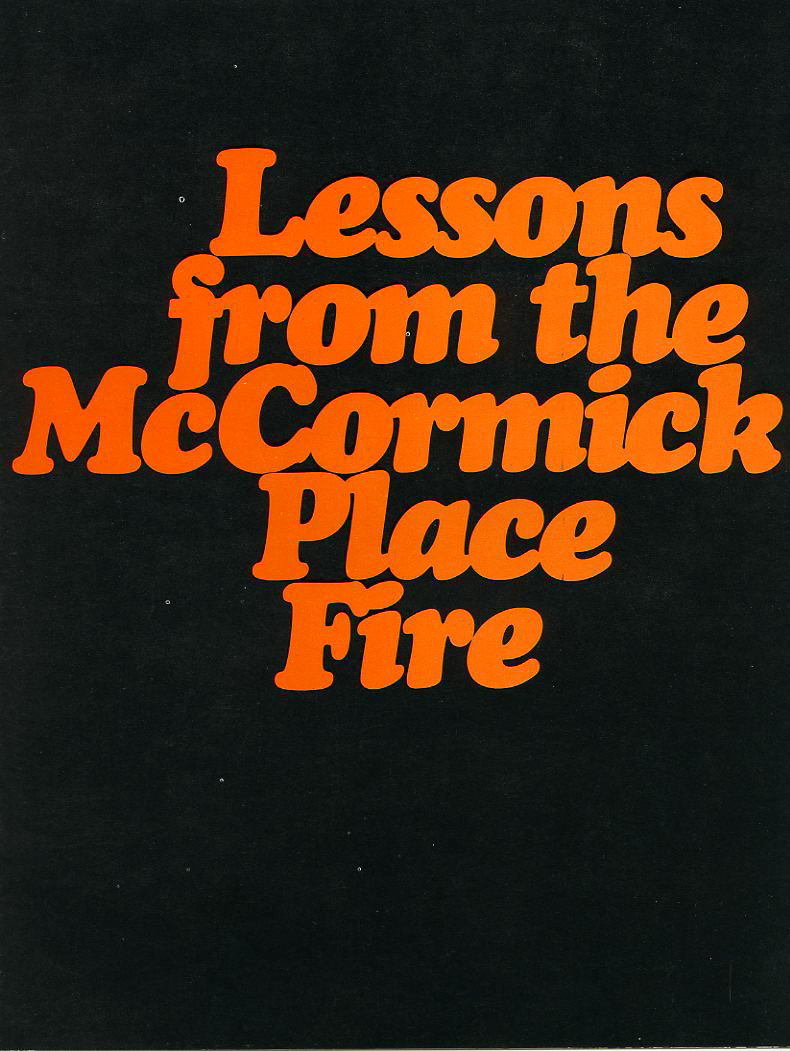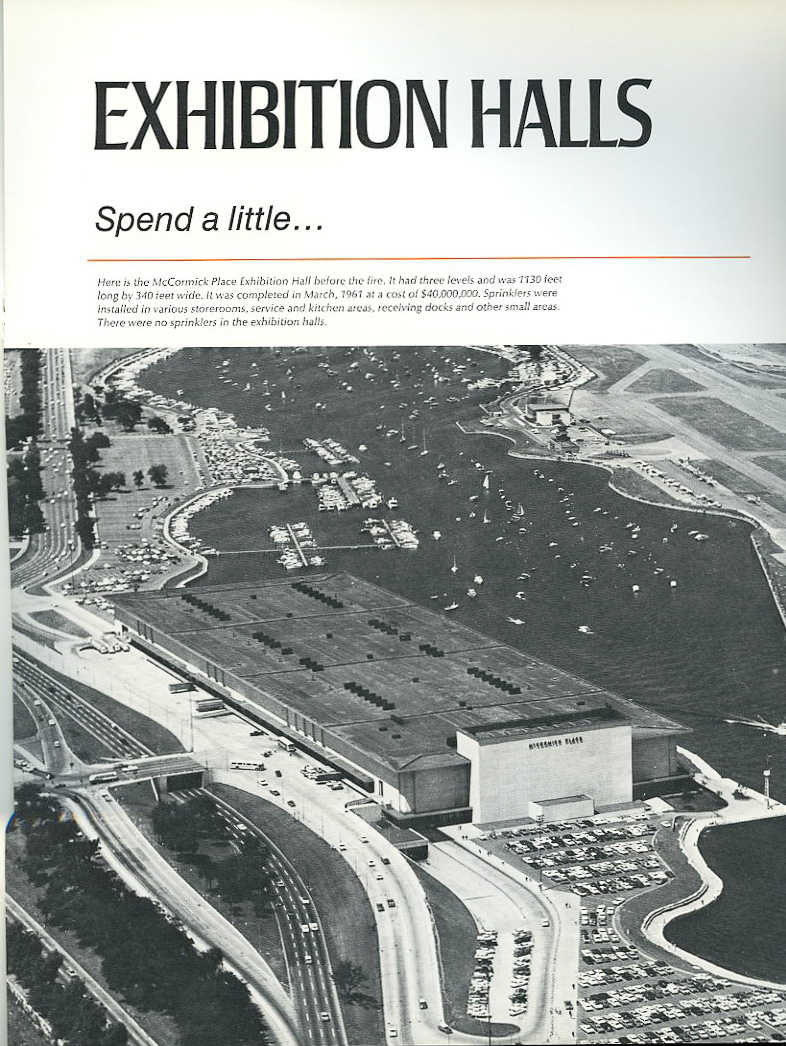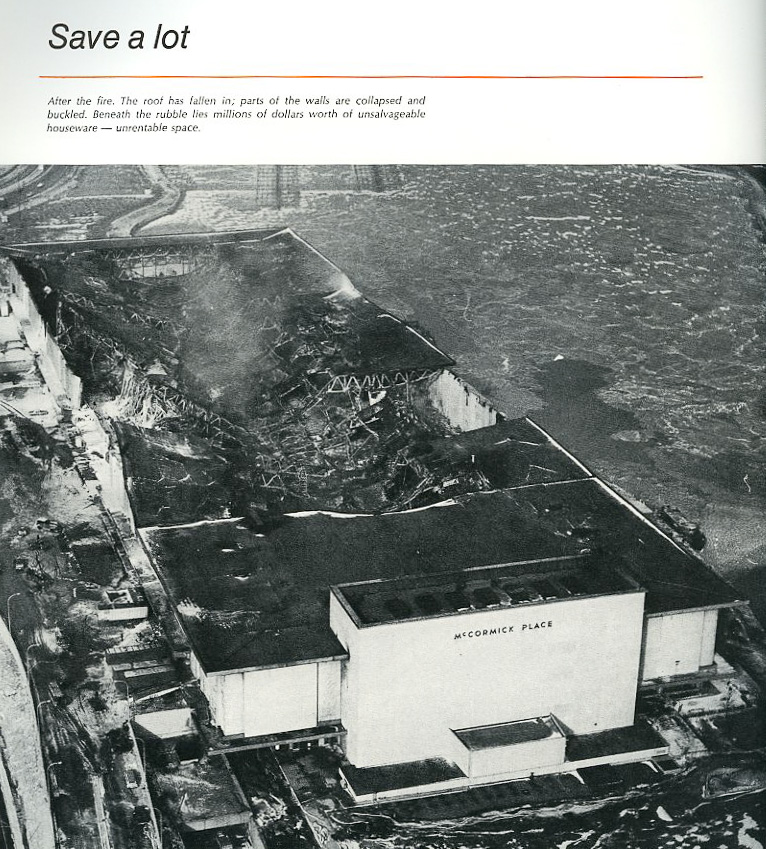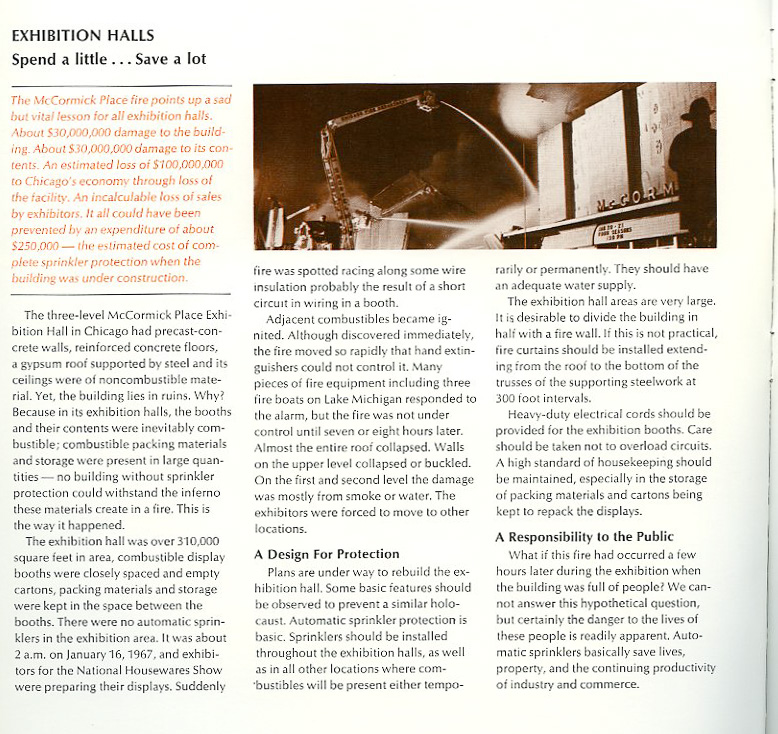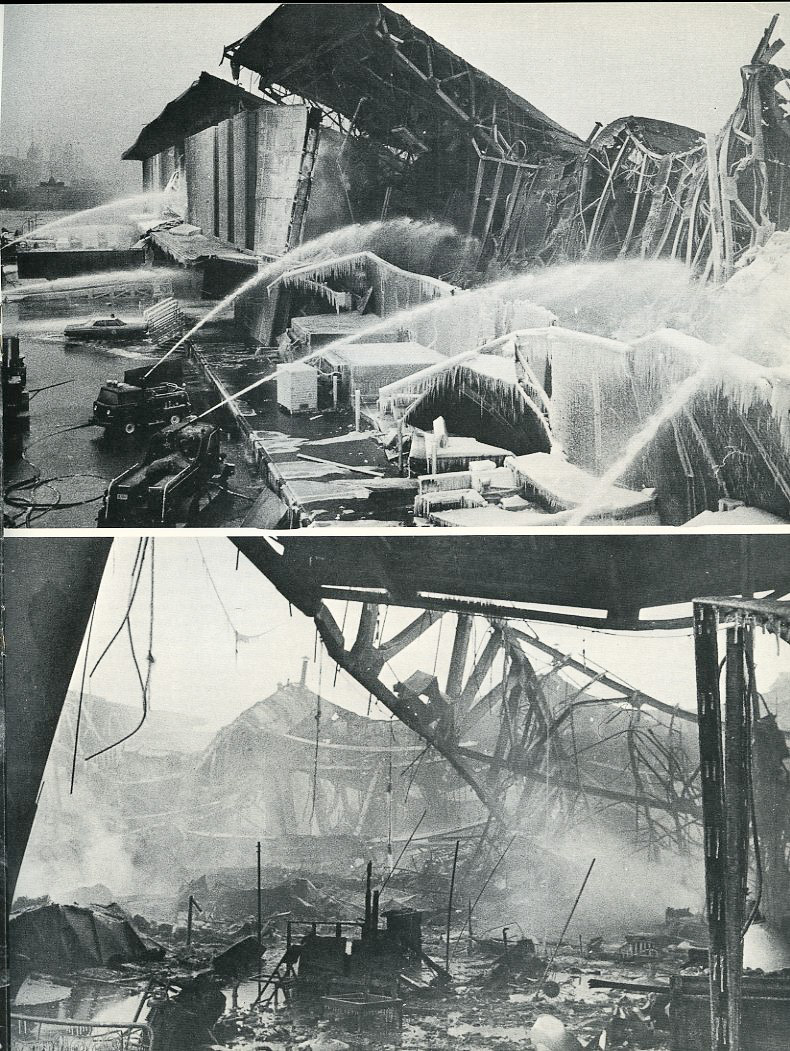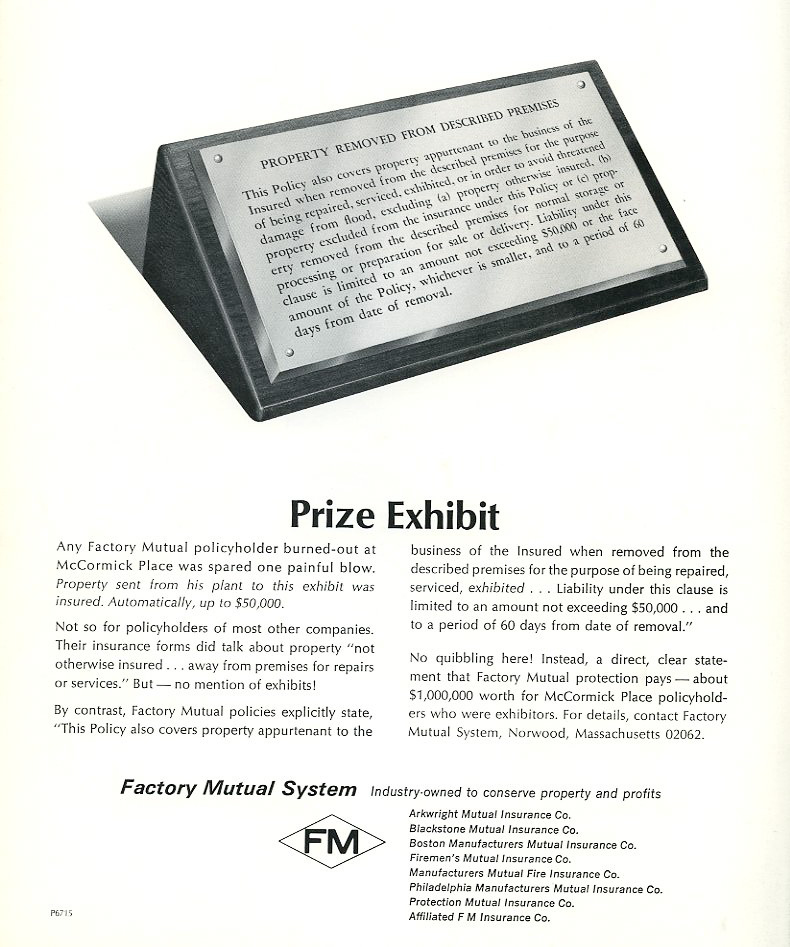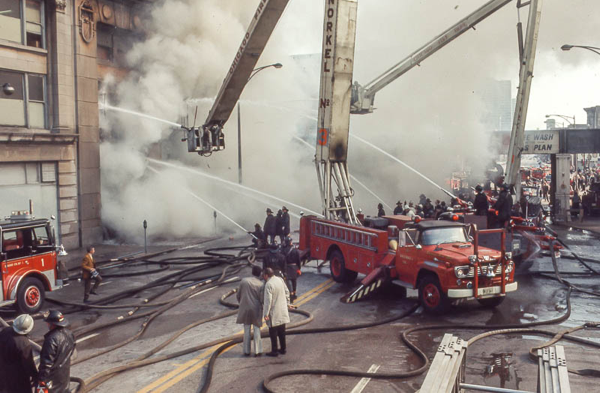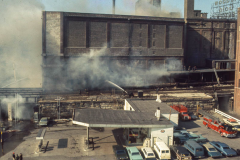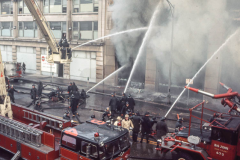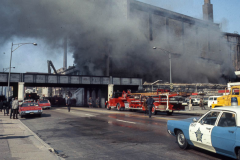More from Luke Whalen:
Posts Tagged Chicago Fire Department history
More from Luke Whalen:
Indiana
This from Austin Lawler:
I came across this slide show of some of the different dogs at CFD firehouses, on the Vintage Tribune instagram page. I thought maybe some of the readers would find this interesting.Austin
The Chicago Fire Department announced today that it will no longer allow dogs at firehouses after a firehouse dog killed a family pet near a fire station. In remembrance, VintageTribune pulled together photos from years past of firehouse dogs and their firefighter owners.
As seen around … Chicago
Apr 11
This from Steve Redick:
Located outside of 127’s present house. Lintel from old 103 and terra cotta panels from old 55. A hidden gem of cool Chicago Fire Department history.
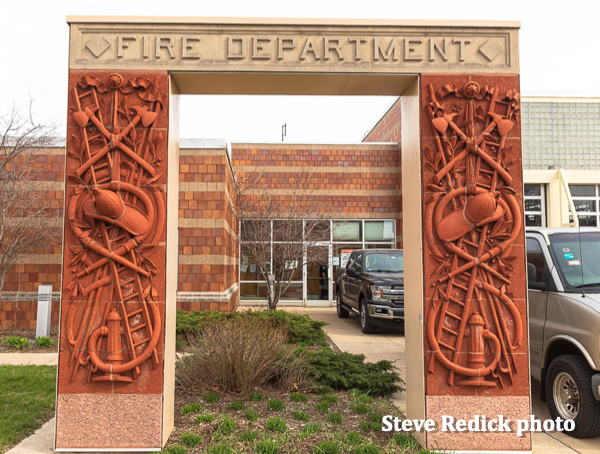
Steve Redick photo
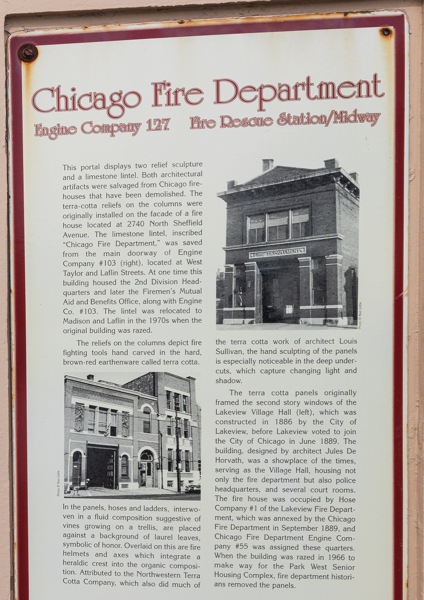
Steve Redick photo
Vintage Film – 1969 Chicago Fire Department – Fire Trucks – Cadillac Ambulance – Fire Boat
thanks Steve
From Steve Redick:
Since we are just past the anniversary of the McCormick Place fire I thought I would post this report I found in my archive
More from Phil Stenholm:
At 4 AM on Saturday morning, September 14, 1889, fire struck the brand-new J. J. Foster Building (stores and apartments) at the northeast corner of Church & Benson. With Fire Marshal Sam Harrison absent from the village, former EFD Chief W. R. “Bob” Bailey took command, assisted by several former members of the legendary Pioneer Fire Company.
A main broke after water-pressure was increased, causing the direct-pressure system to be ineffective. With very low water-pressure, firefighters were unable to get enough water on the fire, and the blaze communicated to the 2nd Baptist Church chapel to the north and threatened Haven School to the east. (The original Haven School was located at the northwest corner of Church & Sherman). Bailey called for assistance from both the South Evanston and Chicago fire departments. The fire was finally extinguished after a Chicago F. D. engine company arrived with a steam fire engine, but not before $25,000 worth of damage.
On Saturday, December 26, 1891, Evanston firefighters battled a blaze in a barn situated behind the French House. (Located at the northwest corner of Hinman & Greenwood, the French House was one of Evanston’s two hotels at the time). The barn and its contents were quickly destroyed, and high winds threatened to extend the fire to several surrounding homes, as well as to the hotel itself. Chief Harrison called for assistance from neighboring towns, and firefighters from the Village of South Evanston, the Village of Rogers Park, and the City of Chicago responded.
Although the assistance provided by the South Evanston and Rogers Park fire departments was appreciated, it was the steam fire engine from the Chicago F. D. (Engine Co. 55, under the command of Capt. Galbraith) that made the difference. Supplying three 2-1/2 inch hose lines, Engine 55 made quick work of the battle, and the neighborhood was saved.
The Village of Evanston (population 12,072) annexed the Village of South Evanston (population 3,205) in 1892, forming what is known today as the “City of Evanston.” The Village of South Evanston’s waterworks had failed during 1891, and Evanston would only provide water to South Evanston if its residents agreed to annexation… which they did, albeit reluctantly.
Evanston’s firefighting force was increased from four men to seven, and the position of Fire Marshal was made full-time (and the Fire Marshal’s annual salary was increased from $200 to $1,000) after the annexation. The annual salary for Evanston’s “line” firefighters was increased from $480 to $600 in 1893.
The fire & police departments moved into the new city hall at the northwest corner of Davis & Sherman in 1893. The fire department was evicted from the facility in 1897 however, amid complaints from fellow city hall occupants regarding residual smoke from the fire department’s steam fire engine, and the sickening odor caused by the stabling of the EFD’s horses inside the building.
Lincoln Avenue is what Main Street was called at the time Evanston annexed South Evanston in 1892, and by 1894, the street name still hadn’t been changed. The Lincoln Avenue schoolhouse was the only school in South Evanston at the time. It was located at the southeast corner of Lincoln & Benson (Main & Elmwood), the future site of Central School, and consisted of the original school building (a three-story brick structure — two floors plus attic, with a full basement), and an attached annex (wood-frame & brick) that was built in 1890.
This incident occurred on the first day of Spring (Wednesday, March 21, 1894) at 10:20 AM.
“SOBS AND MOANS FILLED THE AIR AS THE FLOOR WHERE THE CHILD WAS LAST SEEN BROKE AND CRASHED DOWNWARD. BUT THEY WERE SUDDENLY CHANGED TO SHOUTS OF JOY AS BRAVE SAM HARRISON AND GEORGE HARGREAVES CAME INTO VIEW BEARING THE LIMP FORM OF THE CHILD FOR WHOM THEY HAD RISKED THEIR LIVES. THEIR FACES WERE BLACKENED AND THE BLOOD WAS RUNNING FROM A PAINFUL WOUND IN HARRISON’S HAND.
THEY FOUND THE CHILD IN ONE OF THE AISLES, LYING FACE DOWNWARD. THE SMOKE WAS SO THICK THAT IT WAS WITH DIFFICULTY THAT THEY RETAINED STRENGTH TO REACH THE DOORWAY LEADING TO THE STAIRS. ONCE HARRISON FELL, BUT FORTUNATELY RETAINED HIS SENSES. IT WAS THEN THAT HE INJURED HIS HAND.
JUST AS THEY REACHED THE HALL OF THE REAR ANNEX, THE FLOOR AREA OVER WHICH THEY HAD GROPED WENT DOWN. HAD THEY BEEN A MOMENT LATER, BOTH RESCUERS AND GEORGE HARGREAVES MUST HAVE PERISHED.”
Chicago Herald, March 22, 1894.
Fire destroyed the school, but all of the children were rescued, thanks in no small part to the efforts of Evanston firefighters (Sam Harrison and George Hargreaves in particular) and an expressman named Sam Mack. Mack was passing by the school en route to the South Evanston C&NW RR depot when he noticed smoke pouring from the school’s windows, and children crawling out onto a second floor ledge. Mack calmly directed the children to jump into his arms to escape the flames, repeating the drill until the arrival of the Evanston Fire Department. Chicago F. D. Engine Co. 70 assisted Evanston firefighters in quelling the blaze.
The Lincoln Avenue schoolhouse fire would stand for more than ten years as the single worst fire in Evanston’s history, until the Mark Manufacturing Company fire of December 1905.
In the aftermath of the Lincoln Avenue schoolhouse fire, the Evanston City Council gave the EFD virtual carte blanche to improve its operations. Chief Harrison successfully lobbied for acquisition of a fire alarm telegraph, with placement of fire alarm boxes on street corners to provide citizens with the means to report a fire quickly. In the case of the Lincoln Avenue schoolhouse fire, a citizen ran three blocks to report the fire in person at Fire Station # 2 on Chicago Ave..
